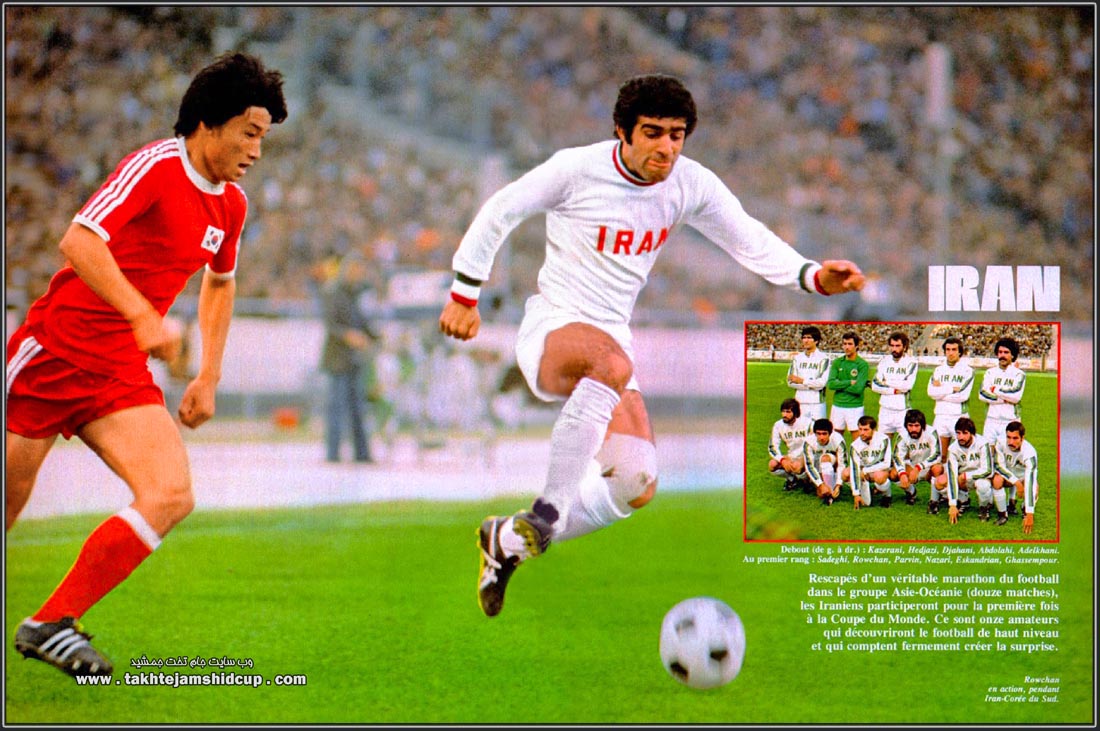https://www.yahoo.com/news/iranian-f...162510047.html

A hugely popular Iranian footballer who trained as a manager at Aston Villa has asked the country’s judiciary to carry out his punishment of 74 lashes in a national stadium in a symbolic gesture of defiance, after being found guilty of "spreading lies and causing public unrest”.
Hassan Rowshan, a football coach for the Esteghlal team who formerly played for the Iranian national team, had claimed in an interview that his club’s academy was “more interested in making money from rich families and did not produce any professional players”.
Two of the club’s directors sued Rowshan for libel and he is believed to have provided insufficient evidence to defend himself against the charges in court.
Rowshan, a household name in Iran, was sentenced on Wednesday to a fine of 10 million Rials (£195) and 74 lashes, which he has asked to be given in the 25,000-capacity stadium.
“I have no money to pay and would happily go to receive the lashes. But I ask the authorities to carry out the lashing in Amjadiya stadium in Tehran,” he said. “I thank Allah for this verdict and obey the court’s ruling.”
Mahmood Sarabi, who played along Rowshan and is currently the coach of Pars football club, the youth Iranian football team in north London, says the choice of stadium is a symbolic one.
“All the glories of Iranian football both on domestic and international stages have been achieved at Amjadiya and Hassan Rowshan has been an inseparable part of these glories.
“By challenging the authorities to lash him at the national stadium he is implying that they are lashing the country’s football and its pride history”, Sarabi told the Telegraph.
It is believed to be unlikely that the lashes will be administered at all, as it may cause a national outcry.
Rowshan made his debut in the world of Iran’s football at the age of 17 by joining Taj youth club in the working-class area of south Tehran.
His “Brazilian style” of playing made him a national figure and he became the record goal scorer of any national team.
Football in Iran has been closely intertwined with politics, both domestic and international. As such, corruption and cronyism in the country’s football clubs, largely run by former commanders of the Revolutionary Guards, has been rampant.

A hugely popular Iranian footballer who trained as a manager at Aston Villa has asked the country’s judiciary to carry out his punishment of 74 lashes in a national stadium in a symbolic gesture of defiance, after being found guilty of "spreading lies and causing public unrest”.
Hassan Rowshan, a football coach for the Esteghlal team who formerly played for the Iranian national team, had claimed in an interview that his club’s academy was “more interested in making money from rich families and did not produce any professional players”.
Two of the club’s directors sued Rowshan for libel and he is believed to have provided insufficient evidence to defend himself against the charges in court.
Rowshan, a household name in Iran, was sentenced on Wednesday to a fine of 10 million Rials (£195) and 74 lashes, which he has asked to be given in the 25,000-capacity stadium.
“I have no money to pay and would happily go to receive the lashes. But I ask the authorities to carry out the lashing in Amjadiya stadium in Tehran,” he said. “I thank Allah for this verdict and obey the court’s ruling.”
Mahmood Sarabi, who played along Rowshan and is currently the coach of Pars football club, the youth Iranian football team in north London, says the choice of stadium is a symbolic one.
“All the glories of Iranian football both on domestic and international stages have been achieved at Amjadiya and Hassan Rowshan has been an inseparable part of these glories.
“By challenging the authorities to lash him at the national stadium he is implying that they are lashing the country’s football and its pride history”, Sarabi told the Telegraph.
It is believed to be unlikely that the lashes will be administered at all, as it may cause a national outcry.
Rowshan made his debut in the world of Iran’s football at the age of 17 by joining Taj youth club in the working-class area of south Tehran.
His “Brazilian style” of playing made him a national figure and he became the record goal scorer of any national team.
Football in Iran has been closely intertwined with politics, both domestic and international. As such, corruption and cronyism in the country’s football clubs, largely run by former commanders of the Revolutionary Guards, has been rampant.






 Roshan asked that they should do it in Amjadieh to embarrass them. I doubt that they dare to carry out this horrific act against such a legend. It could spark unrest in these harsh economic times. Lets see if they are stupid enough to go ahead with it.
Roshan asked that they should do it in Amjadieh to embarrass them. I doubt that they dare to carry out this horrific act against such a legend. It could spark unrest in these harsh economic times. Lets see if they are stupid enough to go ahead with it.





Comment